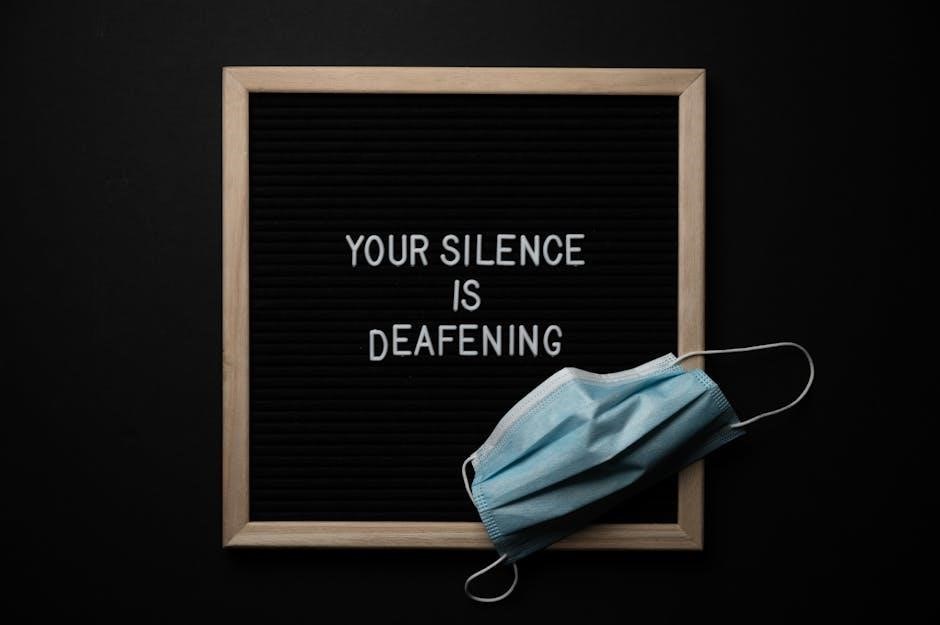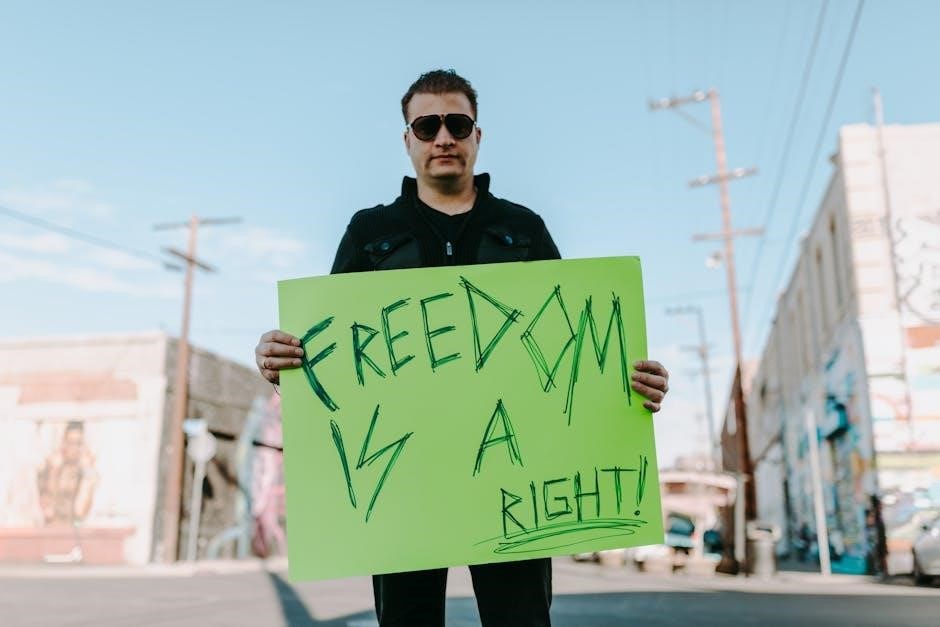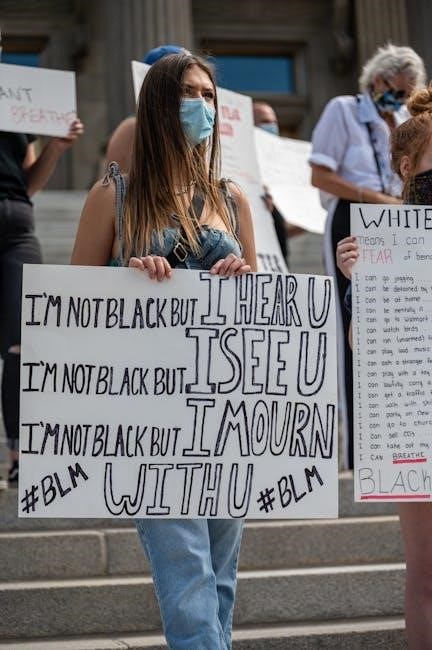justice what is the right thing to do pdf
Michael J. Sandel’s “Justice: What Is the Right Thing to Do?” explores fundamental ethical dilemmas‚ tracing justice from ancient philosophy to modern legal systems‚ emphasizing morality and human values.
The Evolution of Justice: From Ancient Philosophy to Modern Legal Systems
The concept of justice has evolved significantly from ancient philosophical debates to contemporary legal frameworks. Ancient thinkers like Aristotle and Plato laid the groundwork‚ exploring justice as virtue and the ideal state. Medieval theologians introduced ideas like the “just price‚” emphasizing fairness in economic exchanges. Modern legal systems incorporate these principles‚ focusing on rights‚ liberties‚ and equality. Michael Sandel’s work bridges these historical and contemporary perspectives‚ highlighting justice as a moral and legal ideal. His approach encourages critical thinking about how societal values shape legal systems‚ ensuring justice remains a dynamic and evolving concept.
Michael Sandel’s Approach to Ethical Dilemmas
Michael Sandel’s approach to ethical dilemmas is characterized by his ability to simplify complex moral theories while engaging readers in profound reflection. In “Justice: What Is the Right Thing to Do?”‚ Sandel explores justice through various philosophical lenses‚ including utilitarianism‚ libertarianism‚ and virtue ethics. He challenges readers to question their assumptions about morality‚ emphasizing the importance of context and human values. Sandel’s method encourages active participation in ethical reasoning‚ using real-world examples like the trolley problem to illustrate moral conflicts. His approach bridges the gap between theory and practice‚ making ethical philosophy accessible to a broad audience while fostering a deeper understanding of justice in everyday life.
Key Theories of Justice

Key theories of justice include utilitarianism‚ libertarianism‚ and virtue ethics‚ each offering distinct perspectives on morality‚ rights‚ and the distribution of goods in society.
Utilitarianism: The Greatest Happiness Principle
Utilitarianism‚ rooted in the “greatest happiness principle‚” posits that actions are morally right if they maximize overall well-being. Jeremy Bentham and John Stuart Mill championed this theory‚ arguing that happiness should be measured by its quantity and distribution. Critics‚ however‚ question its ability to address individual rights and moral complexities. Sandel examines how utilitarianism balances collective good against personal freedoms‚ highlighting its influence on modern ethical decision-making.
Libertarianism: Individual Rights and Freedom
Libertarianism emphasizes individual rights and freedom‚ advocating for minimal government intervention in personal and economic matters. It centers on the belief that individuals should be free to act as they choose‚ as long as they do not infringe on the rights of others. Michael Sandel critiques libertarianism‚ questioning whether absolute freedom aligns with justice and the common good. Libertarian theory often clashes with utilitarianism‚ as it prioritizes individual autonomy over collective happiness. Sandel’s analysis highlights the tension between personal liberty and societal responsibility‚ challenging readers to consider the moral implications of unchecked freedom in a just society.
Virtue Ethics: The Role of Character in Justice
Virtue ethics emphasizes the importance of character and moral virtues in determining justice. Unlike utilitarianism or libertarianism‚ it focuses on who we are rather than what we do. Michael Sandel explores how justice involves cultivating good character traits‚ such as honesty‚ fairness‚ and compassion. Drawing on Aristotelian philosophy‚ Sandel argues that justice is not just about following rules but about becoming a morally admirable person. Virtue ethics challenges the idea that justice can be reduced to abstract principles‚ instead highlighting the need for ethical formation. Sandel’s discussion underscores the tension between virtue ethics and modern pluralistic societies‚ where consensus on virtues is difficult to achieve‚ making it a compelling yet complex approach to understanding justice.

Markets and Morals
Markets and morals intertwine‚ raising questions about fairness and equality. Sandel’s work highlights how economic systems reflect and shape ethical values and principles‚ influencing societal justice.
The Concept of the “Just Price” in Medieval Times
In medieval times‚ philosophers and theologians introduced the concept of the “just price‚” which was believed to ensure fairness in economic transactions. This principle‚ often tied to tradition or the cost of production‚ aimed to prevent exploitation by reflecting the true value of goods. The idea was rooted in moral and ethical considerations‚ emphasizing that economic exchanges should align with divine or natural law. By setting a just price‚ society sought to maintain balance and justice in trade‚ ensuring that both buyers and sellers were treated fairly. This medieval concept remains relevant in modern debates about markets and morals‚ highlighting the enduring connection between economic systems and ethical principles.
Modern Debates on Markets and Their Moral Implications
Modern debates on markets and their moral implications often revisit the concept of justice in economic transactions. While medieval thinkers emphasized the “just price‚” contemporary discussions focus on issues like sweatshop labor and environmental degradation. Michael Sandel’s work highlights the ethical dilemmas of market-driven societies‚ questioning whether profit should dictate value. Critics argue that unchecked markets prioritize economic efficiency over human well-being‚ leading to exploitation. Others defend markets as promoters of freedom and innovation. The tension between economic systems and moral principles remains central‚ urging society to redefine what justice means in a globalized world. Balancing efficiency with equity continues to be a pivotal challenge in modern discourse.

Case Studies in Justice
The book examines real-world dilemmas‚ such as the Trolley Problem and sweatshop labor‚ to explore moral principles and their application in society.
The Trolley Problem: A Classic Ethical Dilemma
The Trolley Problem‚ a thought experiment‚ poses a stark moral choice: divert a trolley to save five people but kill one‚ or do nothing. This dilemma‚ explored in Justice: What Is the Right Thing to Do?‚ highlights the tension between consequentialist and deontological ethics. Sandel uses it to examine how moral principles like the greater good and individual rights collide. The problem challenges readers to question their intuition about sacrifice and moral responsibility‚ revealing the complexity of ethical decision-making in real-world scenarios. By engaging with this classic dilemma‚ Sandel encourages a deeper reflection on justice and its practical applications in society.
Economic Justice: The Example of Sweatshop Labor
Economic justice is a critical aspect of ethical inquiry‚ as highlighted in Justice: What Is the Right Thing to Do?. Sweatshop labor‚ characterized by low wages‚ poor working conditions‚ and exploitation‚ raises profound moral questions. Sandel examines whether such practices can ever be justified‚ challenging readers to consider the balance between economic efficiency and human dignity. This case study illustrates the tension between utilitarian arguments for economic growth and the deontological imperative to protect workers’ rights. By exploring sweatshop labor‚ Sandel prompts a deeper reflection on distributive justice and the ethical responsibilities of businesses and consumers in a globalized economy.

The Common Good
The common good refers to the well-being of all society members. It balances individual rights with collective needs‚ ensuring fairness and equality for everyone‚ often requiring compromise to overcome divisions.
Defining the Common Good in a Pluralistic Society
Defining the common good in a pluralistic society is challenging due to diverse beliefs and values. It involves balancing individual rights with collective well-being‚ ensuring fairness‚ and addressing the needs of all members. Michael Sandel emphasizes that the common good requires a moral and civic engagement‚ beyond mere economic efficiency or legal frameworks. In a pluralistic society‚ achieving the common good demands dialogue‚ mutual respect‚ and a shared commitment to justice. Sandel argues that it is not about imposing a single vision but fostering a community where everyone’s dignity is respected. This approach encourages societies to prioritize ethical considerations and the well-being of all‚ rather than catering to individual or factional interests.
Challenges in Pursuing the Common Good
Pursuing the common good in a pluralistic society faces significant challenges‚ including conflicting values‚ self-interest‚ and political polarization. Michael Sandel highlights that balancing individual rights with collective well-being is difficult when societal preferences diverge widely. Additionally‚ economic inequalities and power imbalances often hinder equitable solutions. Sandel argues that ethical decision-making must navigate these complexities‚ requiring a renewed focus on civic responsibility and moral reasoning. Without a shared vision of the common good‚ societies risk prioritizing short-term gains over long-term benefits‚ exacerbating divisions. Addressing these challenges demands inclusive dialogue and a commitment to justice‚ ensuring that diverse perspectives are considered in the pursuit of shared prosperity and human dignity.

Critiques and Counterpoints
Some critics argue that Sandel’s approach lacks concrete solutions‚ while others propose alternative moral frameworks. Catholic teachings offer a counterpoint‚ emphasizing justice rooted in divine principles.
Limitations of Sandel’s Approach to Justice
Michael Sandel’s approach to justice‚ while thought-provoking‚ has been criticized for lacking concrete solutions to ethical dilemmas. Critics argue that his emphasis on moral reasoning often leaves practical applications unclear. Some scholars suggest that his framework‚ though comprehensive‚ may not adequately address the complexity of modern legal systems. Additionally‚ Sandel’s reliance on philosophical debates can sometimes overshadow empirical considerations. While his work sparks important discussions‚ it may not provide sufficient guidance for resolving real-world injustices. Alternative perspectives‚ such as those rooted in religious ethics‚ offer counterpoints by advocating for justice grounded in divine principles rather than purely secular reasoning.
Alternative Perspectives on Moral and Legal Philosophy
Alternative perspectives on moral and legal philosophy offer diverse frameworks for understanding justice. For instance‚ Catholic teachings emphasize justice rooted in divine principles‚ contrasting with Sandel’s secular approach. John Rawls’ theory of “justice as fairness” provides another lens‚ focusing on equitable distribution of resources. Martha Nussbaum’s capability approach highlights human flourishing as a moral foundation. These viewpoints expand the discourse beyond Sandel’s focus on moral reasoning‚ offering practical and theological counterpoints. By exploring these alternatives‚ scholars and readers gain a richer understanding of justice‚ acknowledging the complexity of moral and legal systems in a pluralistic world.
Michael Sandel’s exploration of justice from ancient philosophy to modern legal systems underscores the enduring relevance of ethical dilemmas in shaping moral and legal values today.
Applying Sandel’s Ideas to Contemporary Issues
Michael Sandel’s framework for justice offers valuable insights into addressing modern ethical challenges. His exploration of moral reasoning and the role of community values provides a lens to navigate issues like economic inequality‚ climate change‚ and technological ethics. Sandel’s emphasis on ethical dilemmas‚ such as the trolley problem‚ encourages critical thinking about tough choices in real-world scenarios. For instance‚ his discussion of sweatshop labor highlights the tension between economic efficiency and human dignity‚ prompting reflections on fair wages and workers’ rights. By applying Sandel’s ideas‚ society can better evaluate the moral implications of market systems and strive for a more equitable distribution of resources‚ aligning economic practices with deeper human values and the common good.
The Ongoing Quest for the Right Thing to Do
Michael Sandel’s work emphasizes that the pursuit of justice is an ongoing endeavor‚ requiring continuous examination of moral principles and societal values. As highlighted in his discussions on justice‚ the concept evolves with changing circumstances‚ necessitating a dynamic approach to ethical dilemmas. The trolley problem and debates on sweatshop labor illustrate the complexity of balancing individual rights with collective well-being. Sandel’s framework encourages society to engage in perpetual dialogue‚ questioning and refining its understanding of justice. This ongoing quest underscores the importance of empathy and understanding diverse perspectives‚ ensuring that the application of justice remains relevant and equitable. By fostering these values through education and public discourse‚ we can perpetuate a society committed to the common good and the continuous pursuit of what is right.
